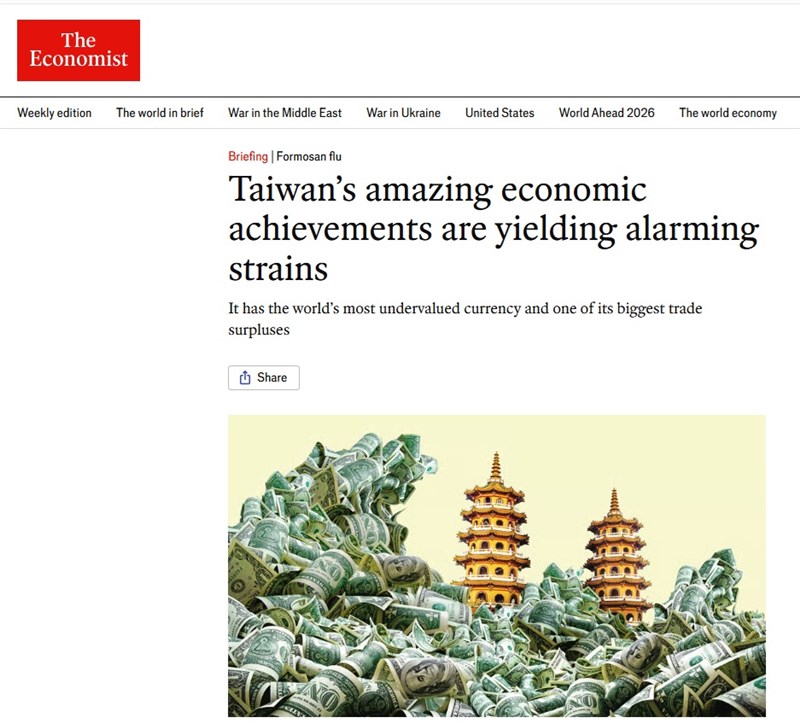
Taipei, Nov. 23 (CNA) A recent article in The Economist arguing that Taiwan's central bank has long kept the Taiwan dollar undervalued has sparked debate among officials and academics, who say the analysis overlooks major shifts in Taiwan's industrial structure.
The magazine used its Big Mac Index to claim the central bank's currency policy has weakened purchasing power, driven up housing prices and created financial risks -- a view that National Development Council (NDC) head Yeh Chun-hsien (葉俊顯) said fails to reflect how Taiwan's export mix has changed over the past 30 to 40 years.
Yeh said Taiwan's industries were once dominated by traditional manufacturing, but the rise of semiconductors and upgraded conventional sectors means firms with unique products or technologies are no longer as vulnerable to exchange rate swings.
Economics Minister Kung Ming-hsin (龔明鑫) was more direct, saying Taiwan's strong export performance has been driven by AI demand, not currency manipulation. "We are not sick. It is those who make such claims who are sick," he said.
Debates over the exchange rate are not new. Between 2008 and 2013, exporters frequently urged the central bank to weaken the Taiwan dollar, including then-Taiwan Semiconductor Manufacturing Co. (TSMC) Chairman Morris Chang (張忠謀), who openly clashed with then-Central Bank Governor Perng Fai-nan (彭淮南).
Chang criticized Taiwan's stronger currency compared with South Korea's, saying cost pressures were hurting competitiveness.
Perng countered that exchange rates cannot solve all export problems.
At the time, South Korea was clearly using depreciation to support its industries, said National Central University economist Chiou Jiunn-rong (邱俊榮), noting that TSMC was not yet the global leader it is today and was more sensitive to margin pressures.
Chiou said Taiwan's Central Bank has generally maintained a "dynamic balance," keeping the currency slightly weaker but avoiding aggressive intervention. Still, criticism has persisted from various sectors, he said.
With TSMC now dominant in advanced manufacturing, the calls for depreciation have subsided, and most businesses now prefer exchange rate stability over rapid swings, Chiou added.
He said today's challenges -- from trade protectionism and U.S.-China tensions to geopolitical risks -- are far more complex than a decade ago. While AI has boosted Taiwan's resilience, traditional industries face pressure mainly from China's overcapacity and weak demand, with exchange rates only worsening an already difficult situation.
Chiou said global political and economic shifts -- including tariff battles, trade negotiations and new carbon costs -- have made the old low-cost model harder to sustain.
Meanwhile, U.S. scrutiny of currency manipulation limits how far Taiwan can intervene, which he said could be an opportunity to move toward a more flexible, stable approach.
- Science & Tech
First live-fire test of air-launched Hsiung Feng III missile conducted
12/19/2025 07:10 PM - Society
Smoke grenade thrown in MRT Taipei Main Station leaves 1 injured
12/19/2025 06:44 PM - Society
Three injured in four-bus collision in Taipei
12/19/2025 06:41 PM - Business
Taiwan files WTO complaint over Canadian steel tariffs
12/19/2025 05:52 PM - Culture
Irish literature exhibition traces shared colonial legacies with Taiwan
12/19/2025 04:54 PM